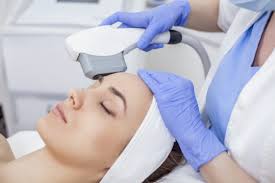What Really Happens at a Men’s Health Center? A First-Timer’s Guide
Many men avoid going to the doctor unless something feels seriously wrong. Often, it’s not due to a lack of concern, but because they simply don’t know what to expect—especially when it comes to visiting a Men’s Health Center. If you’re considering your first appointment or are just curious about what goes on behind those doors, this guide will walk you through everything you need to know.
Understanding the Role of a Men’s Health Center
A Men’s Health Center is a specialized healthcare facility focused exclusively on the medical, physical, and emotional well-being of men. Unlike general clinics, these centers are tailored to address male-specific concerns with a more personalized, streamlined approach.
Men face unique health risks—ranging from hormonal imbalances to cardiovascular issues—that can go unnoticed or untreated when care isn’t specifically geared toward male physiology. The goal of a Men’s Health Center is to detect, treat, and prevent these conditions while supporting men’s lifestyle goals, mental health, and performance.
What to Expect on Your First Visit
The first visit to a Men’s Health Center is designed to create a comprehensive health profile. It typically begins with a detailed medical history and lifestyle questionnaire, followed by a thorough physical examination.
Health History Review
You’ll be asked about:
- Past medical conditions
- Current medications or supplements
- Family health history
- Lifestyle habits (smoking, alcohol, diet, exercise)
- Symptoms such as fatigue, sleep issues, or sexual dysfunction
This review helps your provider identify potential risk factors and tailor the next steps to your individual needs.
Physical Exam
The physical examination may include:
- Blood pressure and heart rate checks
- Weight and body composition analysis
- Abdominal and testicular exam
- Prostate evaluation (based on your health profile)
Depending on your symptoms or risk factors, your provider may also examine other areas like joints, vision, and skin health.
Specialized Screenings and Lab Tests
A core part of your visit will include lab work to assess key health markers. These labs help uncover hidden issues that may not show symptoms right away.
Common Tests Include:
- Hormone panels (testosterone, thyroid, cortisol)
- Lipid profile (cholesterol and triglycerides)
- Blood glucose and A1C (diabetes screening)
- Liver and kidney function tests
- Vitamin D and other nutrient levels
- PSA (prostate-specific antigen) if appropriate
These screenings give your care provider a full picture of your internal health, especially around issues like heart disease, metabolic syndrome, and hormonal imbalances.
Hormone Evaluation and Testosterone Health
Many men visit a Men’s Health Center to understand how hormones are impacting their daily life. Symptoms like low energy, weight gain, mood swings, or reduced libido can often be linked to low testosterone or other hormonal imbalances.
Your provider will review your lab results and, if necessary, suggest options such as:
- Lifestyle changes (nutrition, exercise, sleep hygiene)
- Natural supplementation
- Hormone replacement therapy (HRT)
- Regular monitoring of hormone levels
Restoring hormonal balance can dramatically improve how you feel, look, and perform—both physically and mentally.
Support for Sexual Health and Performance
Sexual health is one of the most common yet least-discussed issues among men. A Men’s Health Center provides a safe, confidential space to address problems such as erectile dysfunction, premature ejaculation, low libido, and performance anxiety.
You can expect:
- Physical evaluation to rule out underlying conditions
- Blood flow testing or penile ultrasound if necessary
- Evaluation for psychological or stress-related causes
- Treatment options including medication, therapy, or devices
The goal is to restore both physical function and self-confidence while addressing the root cause.
Personalized Fitness and Nutrition Plans
Your body is unique, and your fitness and nutrition plan should be too. A Men’s Health Center typically includes professionals who can help you design a personalized wellness plan that supports your health goals—whether that’s losing weight, gaining muscle, increasing stamina, or managing chronic conditions.
These services may include:
- Meal planning based on lab results and body composition
- Supplement advice for deficiencies or performance
- Exercise programs tailored to your body and schedule
- Accountability coaching and regular check-ins
This personalized approach helps men achieve sustainable health outcomes that go beyond short-term fixes.
Mental Health Services for Men
Men often experience anxiety, depression, and burnout differently than women—and they’re less likely to seek help. A Men’s Health Center recognizes this and offers mental health support in an environment that feels safe and stigma-free.
You may be offered:
- Stress and anxiety assessments
- Access to therapists who specialize in men’s mental health
- Counseling for life transitions, relationships, or self-esteem
- Sleep assessments and treatment for sleep apnea or insomnia
Mental and emotional health is closely tied to physical wellness. Addressing both together improves overall quality of life and resilience.
Preventive Health and Long-Term Monitoring
Once your initial evaluation is complete, your provider will create a preventive care plan customized to your health profile. This may include:
- Regular checkups and follow-ups
- Vaccinations and age-appropriate screenings
- Early detection for heart disease, cancer, and metabolic issues
- Lifestyle coaching for stress, diet, and movement
Ongoing care helps prevent small issues from becoming major health threats and keeps you informed and empowered.
The Experience: What Makes It Different?
Visiting a Men’s Health Center is often a more comfortable experience for men compared to general clinics. Everything from the appointment structure to the conversation style is designed to match male communication preferences and comfort levels.
What sets these centers apart:
- Shorter wait times and more time with providers
- A direct, results-focused approach to care
- Male-centric staff training and expertise
- A discreet, welcoming atmosphere
This environment encourages men to take their health seriously without the anxiety or discomfort they may feel in traditional settings.
FAQs
What types of health concerns are treated at a Men’s Health Center?
A Men’s Health Center treats a wide range of male-specific concerns, including hormonal imbalances, sexual dysfunction, heart health, mental wellness, digestive issues, weight management, and preventive screenings.
Is it embarrassing to talk about sexual or hormonal problems?
Not at all. These centers are built to address private health concerns with professionalism and respect. Most men feel more comfortable once they realize the providers are experienced in handling sensitive topics.
Do I need a referral to visit a Men’s Health Center?
Usually, no referral is needed. You can schedule a consultation directly. It’s recommended to bring a list of any symptoms or health questions you have.
How often should I visit?
This depends on your health status and goals. Many men benefit from a comprehensive checkup once or twice a year, with follow-ups for any treatment plans in progress.
Can I get lab results and treatment plans on the same day?
In many cases, yes. Some labs are processed in-house for faster results. Treatment plans are typically developed based on initial evaluations and refined once labs come in.
Final Thoughts
A visit to a Men’s Health Center can be one of the most important steps you take for your health. Instead of waiting until something goes wrong, you can proactively manage your well-being, improve your energy, address private concerns, and build a long-term health plan that fits your lifestyle.
Whether you’re experiencing symptoms or just want a clearer picture of your health, now is the right time to take control. Prioritize yourself. You’ll be glad you did.













